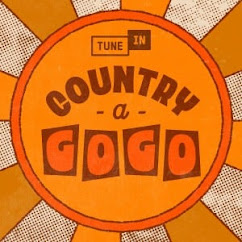 |
| Dupree with pianist Curtis Jones and some unknown guide |
His famous quote about racism, repeated many times in many variations in concert, goes like this: "When you open up a piano, you see freedom. Nobody can play the white keys and don't play the black keys. You got to mix all these keys together to make harmony."
The first two albums Jack recorded in Europe were his 2nd and 3rd Atlantic LPs, Champion of the Blues & The Natural and Soulful Blues. Champion, which is a solo LP and a fascinating record, contains a number of songs expressing his sorrow over the treatment of blacks in the US. They were recorded in Denmark, and Jack was delighted to be there. He even says, in "Daybreak Stomp" (which bears very little relation to the Mr. Bear song of the same title from his King era) that if he could live his life over, he'd stay in Copenhagen. In the liner notes to Champion of the Blues he describes his sense of what the blues meant to the people of the South.
"You can go in them little country towns and hear the juke box playin' all night, nothin' but the blues. That satisfies their mind. That's the only thing that'll ease their minds, 'cause they're not happy people. Nobody in the South, in the line of colored people, is happy."
Jack eventually moved to Switzerland, then Denmark, the UK (where he got married for the third time), then Sweden, and finally Germany. He'd record dozens of records while in Europe, and many of them would have songs expressing how happy he was to be out of the states.
There are numerous examples of Jack's sorrow over the condition of race relations in the states, including his eulogy to Martin Luther King and a sorrowful live cut called "Black and White Blues" (where he actually tells his European audience that they should be psyched to be white, making him one of the ballsiest of the blues revivalists of the late 60s playing to white college kids with romantic ideas of southern poverty).
Two non-youtoobabble examples I'll leave you with are the terribly sad "Poor Poor Me" and "I'm Happy to Be Free". "Poor Poor Me" was cut in the Mid-60s for the first of his "jam with the popular British guitarists album", From New Orleans to Chicago, which featured John Mayall, Eric Clapton, and T.S. McPhee. "I'm Happy to Be Free" was cut for a relaxed Mickey Baker session in the late 60s and appeared on the GNP LP of the same name.
Jack would not return to the states until the late 80s, when he recorded a couple of albums for Rounder in New Orleans. He died in Germany in 1992.
"Poor Poor Me"
"I'm Happy to Be Free"
More thoughts on Copenhagen on "Roll Me Over Roll Me Slow"
Jack eventually moved to Switzerland, then Denmark, the UK (where he got married for the third time), then Sweden, and finally Germany. He'd record dozens of records while in Europe, and many of them would have songs expressing how happy he was to be out of the states.
There are numerous examples of Jack's sorrow over the condition of race relations in the states, including his eulogy to Martin Luther King and a sorrowful live cut called "Black and White Blues" (where he actually tells his European audience that they should be psyched to be white, making him one of the ballsiest of the blues revivalists of the late 60s playing to white college kids with romantic ideas of southern poverty).
Two non-youtoobabble examples I'll leave you with are the terribly sad "Poor Poor Me" and "I'm Happy to Be Free". "Poor Poor Me" was cut in the Mid-60s for the first of his "jam with the popular British guitarists album", From New Orleans to Chicago, which featured John Mayall, Eric Clapton, and T.S. McPhee. "I'm Happy to Be Free" was cut for a relaxed Mickey Baker session in the late 60s and appeared on the GNP LP of the same name.
Jack would not return to the states until the late 80s, when he recorded a couple of albums for Rounder in New Orleans. He died in Germany in 1992.
"Poor Poor Me"
"I'm Happy to Be Free"
More thoughts on Copenhagen on "Roll Me Over Roll Me Slow"














0 Comments:
Post a Comment